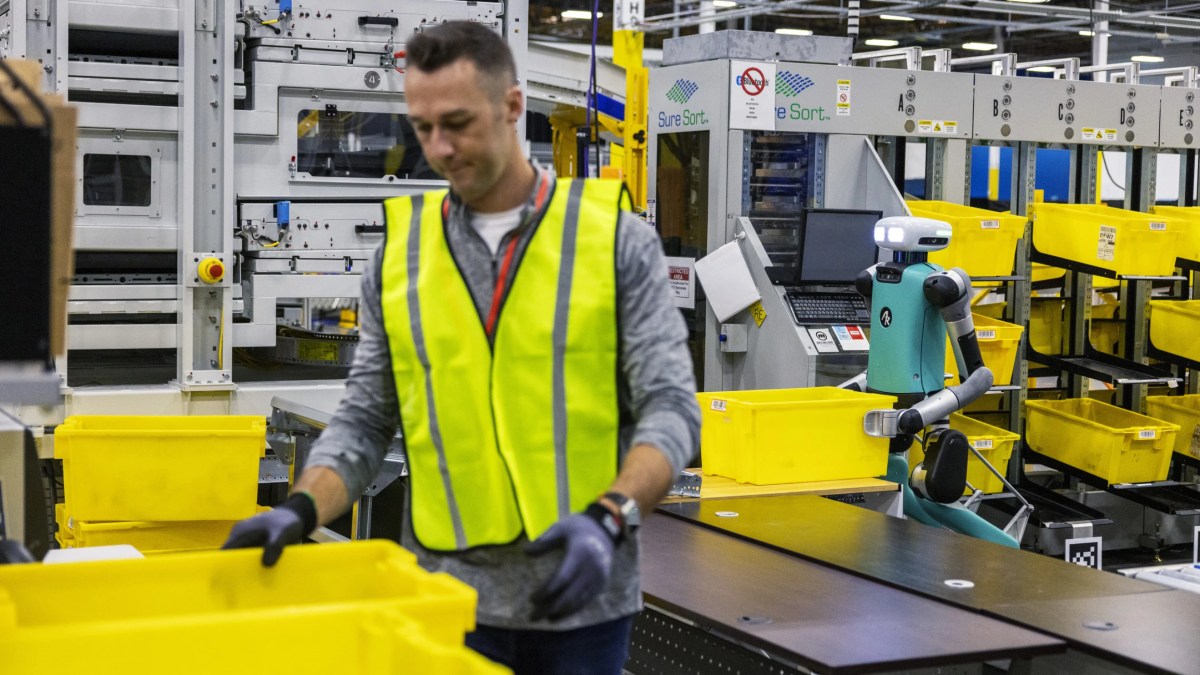Amazon has invested a significant but undisclosed portion of its $1 billion industrial innovation fund in around a dozen U.S. and Israeli startups focusing on logistics, the supply chain, and customer fulfillment over the past two years. The fund’s new head, Franziska Bossart, revealed in an exclusive interview with TechCrunch that Amazon is now looking to expand geographically and venture into areas like generative AI to support its broader mission.
The Amazon Industrial Innovation Fund, established in April 2022, remains dedicated to identifying and supporting startups that can enhance the speed of goods delivery and elevate the overall experience for customers and employees working in Amazon’s warehouses and logistics divisions. This initiative builds upon Amazon’s prior investments in AI and robotics, which have already optimized its operations through the integration of robotic arms for repetitive tasks and automated vehicles for transporting larger items. The initial investments in 2022 were directed towards five startups specializing in robotics and wearable technology aimed at enhancing safety within Amazon’s fulfillment centers.
Although the fund had a modest start with an initial investment of $110 million in its inaugural year, its pace accelerated notably since spring 2023 with investments in companies such as Veo Robotics, Flymingo, CoreTigo, Rightbot, and Instock. Furthermore, the fund recently backed an undisclosed generative AI startup, with Bossart hinting at the technology’s potential impact on robotics.
Bossart highlighted the fund’s increasing momentum towards the end of the year and outlined plans for geographical and thematic expansion, particularly eyeing opportunities in Europe and Asia. She expressed a desire for the fund’s portfolio, predominantly comprising early-stage startups, to gradually shift towards more investments in later-stage companies. Additionally, Amazon’s focus is now honed on three main areas: AI, bipedal/humanoid robots, and technologies like autonomous vehicles to enhance middle-mile and last-mile delivery services.
While Amazon has a history of leveraging AI in its operations, Bossart emphasized the untapped potential of generative AI in robotics and automation. By harnessing generative AI’s ability to create new information from trained models, startups can enhance perception, manipulation, and control within automation systems. Bossart also noted the significance of access to extensive datasets for training AI, an area where Amazon’s vast resources can be beneficial for startups.
Robotics, particularly humanoid robots, have been a focal point for Amazon, with a keen interest in mobile manipulation capabilities. The company’s investment in Agility Robotics, known for its bipedal robot Digit, exemplifies this focus on innovative robotic solutions. Amazon’s ongoing testing of Agility’s robot system at its BFI1 R&D facility underscores its commitment to exploring advanced robotics technologies.
Looking ahead, Amazon is exploring diverse solutions for improving package delivery efficiency, including investments in autonomous vehicle technology and automation tools for streamlining package unloading processes. Bossart emphasized the fund’s experimental nature, highlighting Amazon’s commitment to innovation and exploration beyond immediate commercial interests.
Apart from the Industrial Innovation Fund, Amazon has a history of investing in technologies aligned with its mission, such as the $2 billion Climate Pledge Fund aimed at sustainable initiatives to achieve net-zero carbon operations by 2040. This fund has supported various companies working on sustainable technologies, further underscoring Amazon’s multifaceted approach to innovation and investment.






